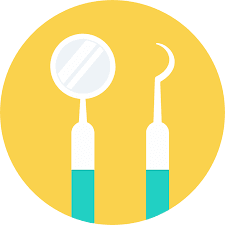What is Manual Dexterity?
According to workplacetesting.com, manual dexterity is one’s ability to execute controlled movement using hand-eye coordination under specific conditions. A person develops manual dexterity from early childhood by learning tasks such as writing, grasping and releasing objects, and assembling puzzles and construction toys. This ability can be further honed in adults who require advanced manual dexterity for their profession. Dentistry is one such profession where manual dexterity skills are highly valued. This article, therefore, highlights the importance of manual dexterity in a dentist’s career.
Why is Manual Dexterity necessary in our day to day life?
We are using our hands every day at every moment for a variety of reasons. Manual dexterity is what lets us use our hands at our commands to perform various tasks.
Manual dexterity is what allows us to perform our most mundane day-to-day tasks. It enables us to pick up a pen and use it to write a sentence. It allows us to hold our spoons so that we can feed ourselves. Without a certain level of manual dexterity, we would be I’m able to function normally in our daily lives.
Why is Manual Dexterity necessary in dentistry?
A doctor’s hands, in general, are known as “Healing Hands” because doctors- whether they are surgeons or dentists or physicians of any sort- use their hands to give high-quality treatment to their patients.
In order to perform dental procedures, a dentist must be able to work with precision on an extremely small scale. Additionally, superior hand-eye coordination is critical in ensuring the safety of patients and the integrity of the profession. Therefore it is safe to say dentistry is one such profession where the importance of manual dexterity is very high.
Dentistry is a profession that demands fantastic oral communication, keen attention to detail, excellent bedside manners, clear conception to solve problems, and, most importantly, excellent manual dexterity. This is because working in the limited space of a patient’s mouth requires a high degree of precision. Therefore, it is imperative that your manual dexterity is developed and doesn’t waver for you to be a competent and confident dentist who provides their patient with the best possible treatment.
How can you improve?
The dental admission test contains a section that has been designed to test this skill, mainly. Moreover, after the written exam and during the sit-in or on-campus interviews, the interviewers will be asking you more about your manual dexterity. So, yes, it is vital for you to improve your manual dexterity before you apply to dental school.
Here are a few ways you can do so-
- Drawing
- Painting
- Sculpting
- Wood carving
- Soap carving
- Sewing
- Cross-stitching
- Knitting
- Crocheting
- Learning to tie various knots
- Learning a musical instrument that requires extensive hand-eye coordination such as the piano or the violin.
Besides this, there are a few exercises that you can perform to help develop your manual dexterity and flexibility. these include the following-
- Squeeze a ball – grab a softball and hold it in your palm, squeezing it as hard as possible. Make sure not to hurt yourself and hold the position for three to five seconds. Repeat this exercise 10 to 12 times for each hand.

- Make a fist – make a gentle fist with your thumb wrapped across your fingers. Hold the position for a minute, then let go opening your fingers one by one and as wide as possible.
- The finger lifts – place one of your hands on a flat surface, pawn face down. Then lift one finger from that surface and hold the position for one or two seconds then lower that finger. Do this for each finger one after another and repeat for the other hand.
- Stretch your wrists– overworking your hands can lead to injury and wrist pain. To help with these, perform the wrist-extending stretches, as shown in the diagrams below. Perform each set at least four times per arm, holding each position for 15 to 30 seconds.

However, I am here to provide you with some good news. According to this study, manual dexterity is not essential (but valued) in the selection of dental students. Students who could follow training significantly improved their manual ability. What this means is that as you practice dentistry, your manual dexterity will increase over the years with experience and practice. So even if your hand-eye coordination isn’t the best right now, don’t fret.
The importance of manual dexterity should be evident for you now. One thing to note is that, like with every skill, the only way you can improve and develop is through practice. So pick up that paintbrush and start painting, or pick up a new hobby such as knitting!
